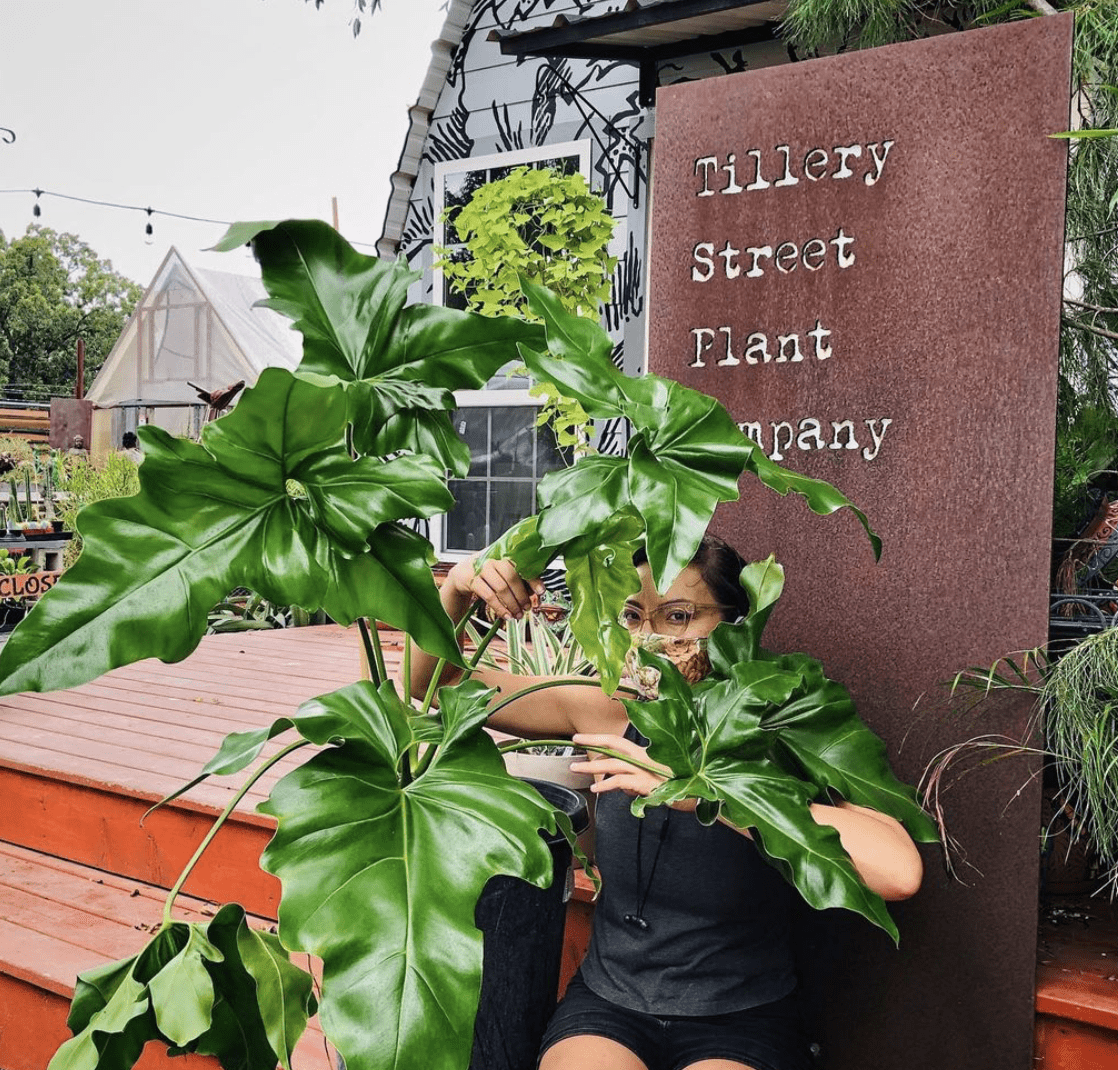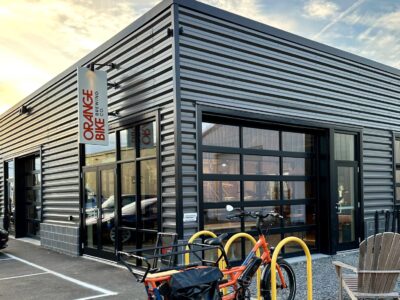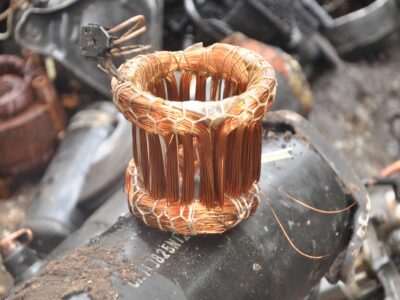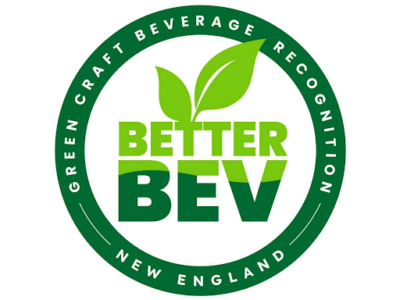Tucked away in an eclectic East Austin neighborhood, Tillery Street Plant Company has made a name for itself as Austin’s premier houseplant store. The well-known nursery has a winding path through what is best described as a plant lover’s oasis in a quickly growing metropolis.
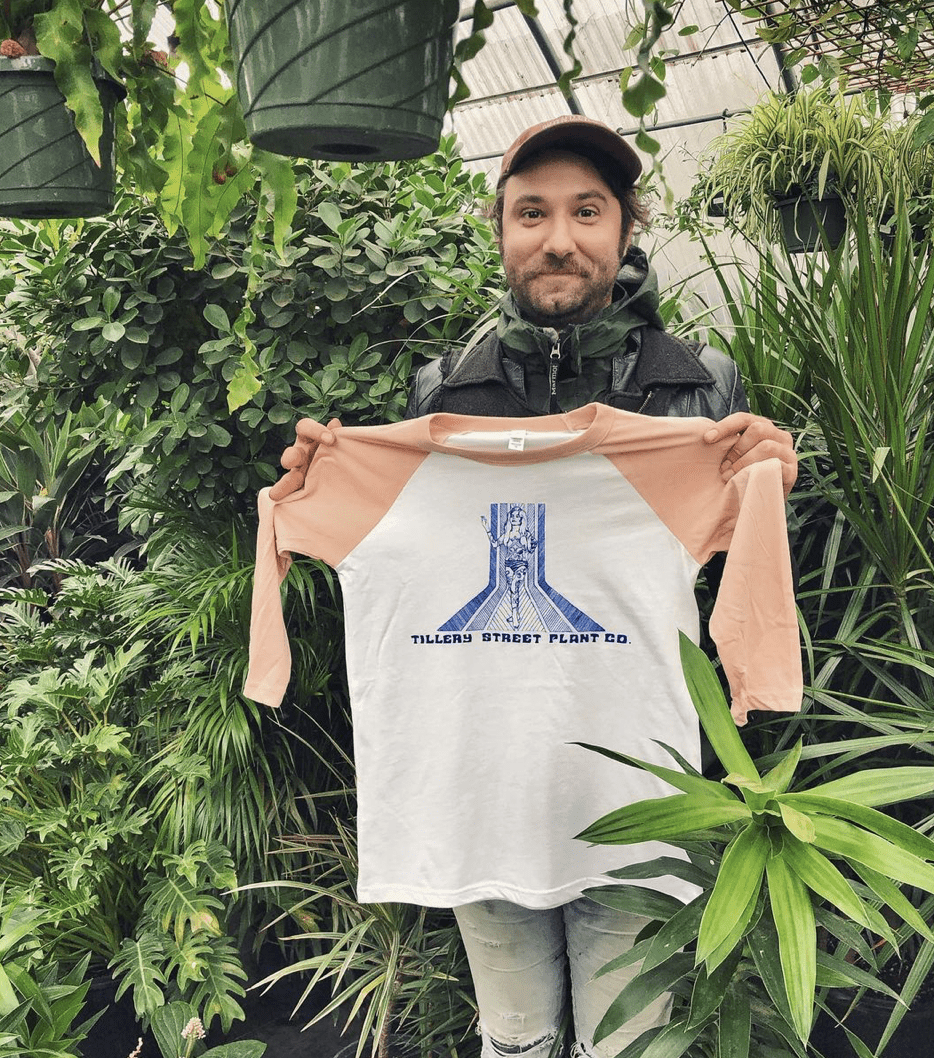
Set back off the wide roads of Central Texas, the renowned nursery houses two repurposed farm storage buildings made of aluminum, each flanked by luscious, wandering greenery. The central building is a trendy cabin decked to the nines, explains Melissa Hagen, the nursery’s Houseplant Manager. Large french doors, framed by two grand, rectangular windows on the sides and a circular skylight above are complemented by the unique floral etching in bold black on the facade.
Sitting in front is a metal sign, red with rust that reads “TILLERY STREET PLANT COMPANY” in Courier typeface. “So it’s this cute little cabin,” Hagen explains, “[A] company came out and built it for us, and a lot of people will build them as home so sometimes people come out to check it out just to see [it],” she describes with a bright laugh as the sounds of loading and unloading houseplant containers echo in the background.
The cabin is the main structure on the grounds (and the only climate-controlled one, making it popular in the hot Texas summers). Inside the cabin sits a handcrafted tile bar refurbished from the shop owner’s childhood home. Atop the bar is an eclectic mix of locally sourced artisan crafts and goods like macrame plant hangers and hand-poured candles. “We have always tried to source locally,” Melissa explains, “we love to support the local community and artists in that way.”

The nursery was founded in 2011 before East Austin’s rise to acclaim and the influx of creatives from America’s increasingly overcrowded metropolises. The “houseplant heaven,” as it dubs itself, was set on Tillery Street thus its name was born. Tillery’s staff may work in a jungle, but the space they foster is inclusive and encouraging. “I find so much joy in growing plants and so much joy in having a garden and cultivating living things [whether] it’s for pleasure or beauty or food,” Hagen explains, alluding to her years of experience as a vegetable grower.
In terms of selection, Tillery doesn’t hold back. It offers a wide range of outdoor-adapted plants suitable for a Central Texas climate and of course, indoor houseplants, succulents, pottery, and small home goods like essential oils.
Tillery feels a bit like a secret garden: winding paths lead to small enclaves across the property, some with picnic tables, vintage trailers turned office spaces and sprawling trays of exotic succulents. “We have a trailer, and that’s our office,” Melissa proclaims proudly, “it’s an old Airstream.”

While Tillery’s products are outstanding, visiting the nursery itself is an experience more than anything. The Houseplant Manager of seven years says there are a variety of patrons that wander through the grounds in search of their next green friend. “From vegetable gardeners to people coming in for houseplants, and even people come in for plants to help support the environment, the butterflies — the monarchs.”
In a world occupied with appearances, one’s heart can rest easy knowing there is a substantial clientele looking to purchase plants simply to help another species thrive. “A lot of people are planting milkweed for the monarch butterflies,” Melissa explains kindly in a soft tone, “they migrate through Texas from Mexico on their way North, and they have had a really hard time over the past few decades.” Hagen is spot on: monarch butterflies have decreased by over 95 percent since the 1980s, studies have shown. “People will come in and plant milkweed by milkweed seeds, they’re really hard to germinate…it’s really hard to get them to grow in pots, so they’re harder to find in nurseries,” Melissa tells me. Tillery steps up to the challenge.
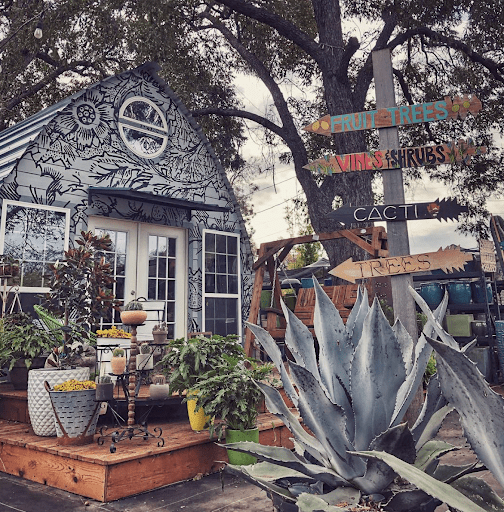
The Austin, Texas gem doesn’t stop its good work with plants though. It is known for its continuous social initiatives that give back to the ever-growing Eastside community, including local public schools, hurricane relief and rebuilding efforts,nearby shelters and displacement nonprofits. “This job can be really hard,” Hagen says, “I definitely feel like my love of the plants keeps me going.”

